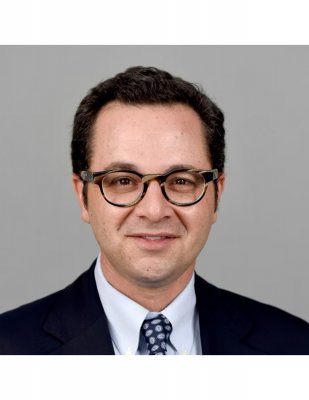David Siroky
Professor University of Florida
Biography
Areas of Expertise
Media Appearances
Georgia is on the verge of turning back to Russia
The Hill online
2024-05-12
Authoritarianism may be in Georgia’s political future, and that is a scary thought. This reality became ever clearer during a recent speech by polarizing Georgian politician Bidzina Ivanishvili, in which he endorsed conspiracy theories about the “global party of war” that he says is subduing Georgia’s identity and backed the kind of anti-Western policies that would bring the country closer to the Kremlin.
Kin Killing: When and Why Governments Target Family Members
Modern War Institute at West Point online
2022-10-20
Sometimes, when it comes to civil war and insurgencies, it’s all in the family. Consider the example of Bashar al-Assad, in Syria. Assad appointed family members to prominent military positions to ensure institutional loyalty, while nearly one-quarter of the Western foreign fighters battling against him had a relative fighting in the civil war. Familial bonds play an important role in these types of conflicts: they can enhance the cohesion and resolve of fighting units and the communities from which they emerge. But such bonds can also be a liability, providing crucial pressure points for counterinsurgency efforts.
An Eye for an Eye: The Dynamics of Blood Revenge in Civil War
Modern War Institute at West Point online
2023-01-26
Over the past fifty years, about two-thirds of all civil wars have occurred in countries where customary traditions of honor and retaliation regulate social life. Firmly embedded in the fabric of local societies, the customary code of blood revenge—the practice of avenging an insult by retaliating against the initial culprit or his close kinsmen—has survived and, at times, thrived amid the chaos of warfare.
Articles
Clients, Rivals, and Rogues: Why Great Powers Intervene in Revolutionary Civil Wars
Cambridge University PressJenne, et al.
2025-12-01
Why do great powers intervene militarily in revolutionary civil wars? This pivotal question in international relations is answered though a new theory of security hierarchies that emphasizes the role of clients, rivals and rogues in world politics. Employing a mixed-methods approach, integrating statistical analysis with comprehensive case studies of Afghanistan, Libya, and Syria, this book demonstrates that great power interventions are significantly more constrained and predictable than previously assumed.
Blood Revenge in Civil War: Proof of Concept
Security StudiesSouleimanov, et al.
2022-12-22
As an embedded sociocultural code, blood revenge is present in many societies where civil wars occur. Whereas evidence from other social sciences attests to its enduring global significance, security studies scholarship has largely neglected the custom of blood revenge. This article is the first to investigate its relevance for understanding the inception, dynamics, and aftermath of armed conflicts, and to present a comprehensive account of how blood revenge may shape civil wars.
Irredentism and Institutions
British Journal of Political ScienceHale & Siroky
2022-07-05
Why do states engage in irredentism? Expanding on previous scholarship, this article advances a new theory with rationalist microfoundations that accounts for the incentives of both elites and citizens to support irredentism in democracies and dictatorships.



